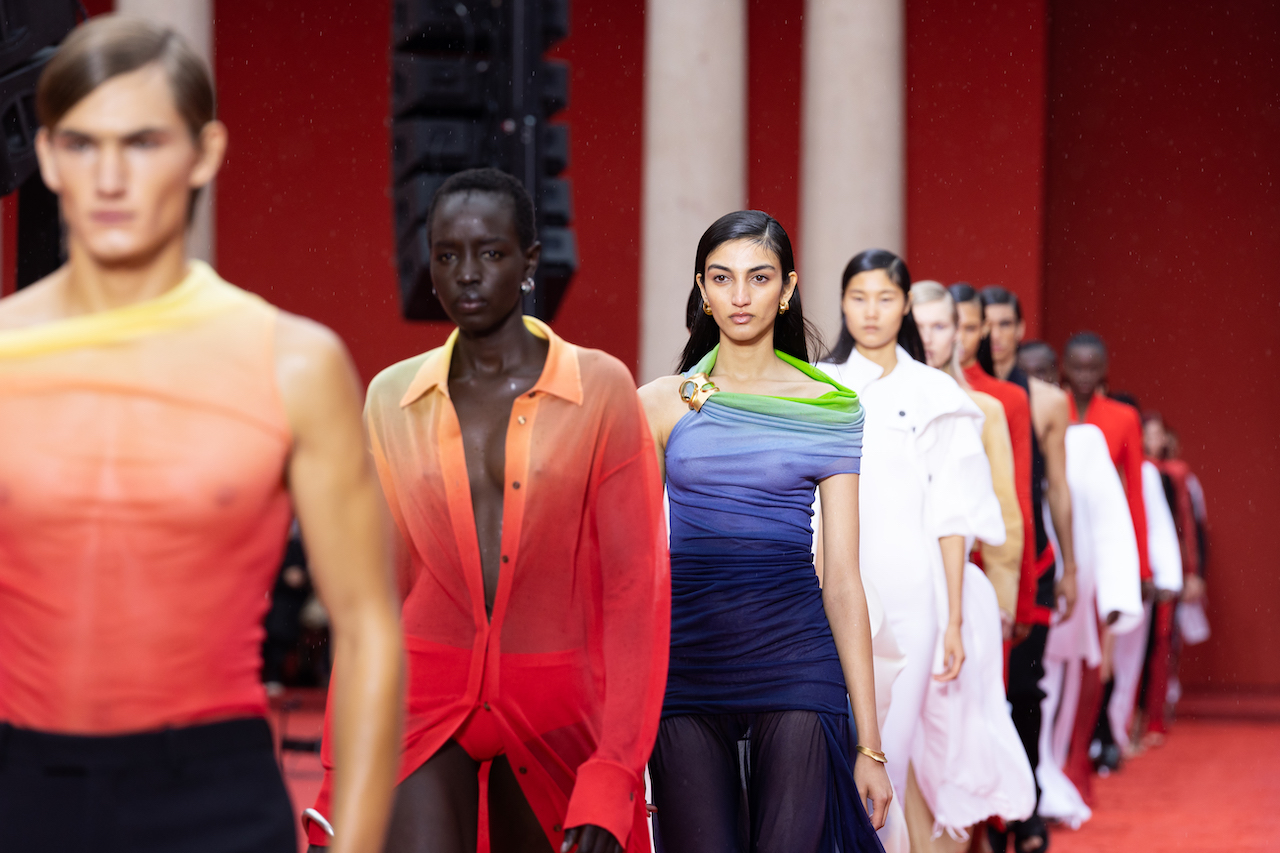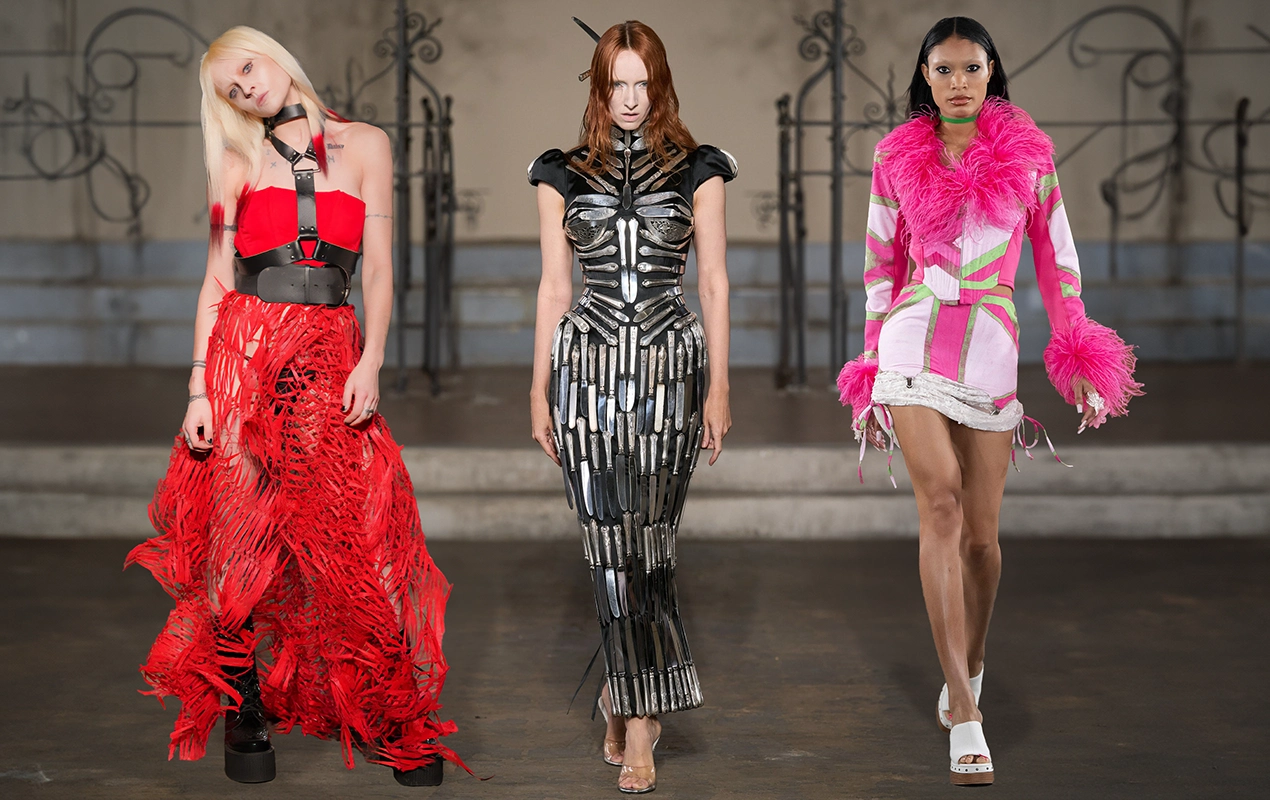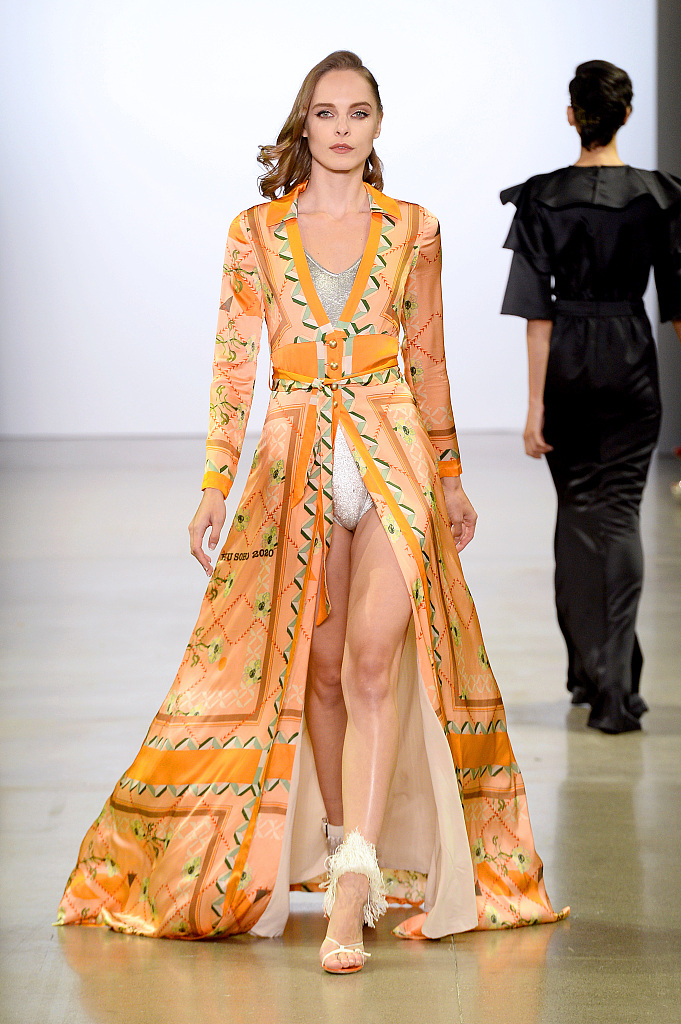Layering 101 for Fall: Fashion Must-Haves Available at Sedgars
Layering 101 for Fall: Fashion Must-Haves Available at Sedgars
Blog Article
The Impact of Lasting Practices on Modern Style Styles
Lasting techniques have actually reshaped modern fashion, driving a shift towards environmentally friendly products and ethical manufacturing. Developers currently favor organic cotton, recycled fabrics, and cutting-edge textiles. Upcycling has transformed waste right into one-of-a-kind garments, while transparency in sourcing has actually ended up being essential. This development reflects an expanding awareness among consumers regarding their getting selections. As the market adapts, new patterns arise that difficulty typical visual appeals. What might the future hold for style in this framework?
The Increase of Eco-Friendly Materials
How have environmentally friendly products transformed the apparel industry? The introduction of environment-friendly products has actually considerably reshaped fashion, driving brand names to reconsider their sourcing and manufacturing processes. These sustainable options, consisting of organic cotton, hemp, and recycled polyester, use a reduced ecological impact compared to typical textiles. Developers are currently focusing on these materials, acknowledging that customers significantly favor brand names committed to sustainability.This shift has resulted in cutting-edge approaches, where fashion homes experiment with eco-friendly fabrics and all-natural dyes, boosting both aesthetic appeal and eco-friendly obligation. Additionally, cooperations between designers and sustainability-focused firms have actually accelerated the integration of eco-friendly products into mainstream collections.As an outcome, the fashion industry is observing a profound yet gradual change, relocating in the direction of a much more lasting future. This commitment not just shows advancing customer values however likewise demonstrates the potential for fashion to lead in ecological stewardship.
Upcycling: Changing Waste Into Style
Upcycling has emerged as a transformative pressure in the garment industry, transforming thrown out products into desirable garments and devices. This cutting-edge strategy not only decreases waste but additionally encourages creativity and originality among developers. By repurposing things such as old apparel, fabric scraps, and also non-textile materials, upcycling creates distinct pieces that inform a story, mirroring specific style and ecological consciousness.Many independent designers and contemporary brand names have welcomed upcycling as a core method, appealing to customers who value sustainability and individuality. The procedure commonly includes strategies like reconfiguration, jumble, or embellishment, allowing for limitless possibilities in style. Therefore, upcycled style resonates with those looking for to make environmentally liable choices while still sharing personal aesthetics.In significance, upcycling not only alleviates the environmental effect of style waste however additionally fosters a brand-new culture of technology and gratitude for craftsmanship within the industry.
Ethical Manufacturing: Fair Labor and Transparency
Honest production in fashion highlights the importance of fair earnings for employees, ensuring that workers obtain just settlement for their initiatives. Transparency in supply chains is important, enabling customers to comprehend the beginnings of their garments and the problems under which they are made. Additionally, honest sourcing practices promote duty in picking materials, strengthening the dedication to sustainability and social justice.
Fair Wages for Workers
While the apparel industry progressively welcomes lasting techniques, guaranteeing reasonable incomes for workers stays an essential component of ethical production. Fair wages not just empower employees yet additionally enhance the overall quality of life for individuals in the supply chain. Numerous brands are now taking on policies that focus on fair payment, acknowledging that a sustainable future can not be developed on exploitation. By committing to reasonable pay, firms promote commitment and boost performance amongst their employees (Sedgars Designer Fashion). Furthermore, consumers are ending up being much more aware of labor issues and are increasingly requiring openness relating to workers' rights. Because of this, brand names that prioritize fair wages are not just lining up with honest standards yet are additionally positioning themselves competitively in a market that values social duty
Transparency in Supply Chains
The commitment to reasonable wages is inherently linked to the broader concern of openness in supply chains within the garment industry. Transparency warranties that customers are informed concerning the origins of their clothing and the problems under which they are produced. Brand names that prioritize openness typically publish thorough reports detailing their supply chain procedures, labor practices, and sourcing of products. This visibility promotes depend on and loyalty amongst customers who significantly demand honest methods. Openness helps to hold business answerable for their labor methods, making it possible for scrutiny and motivating renovations. By revealing the intricacies of their supply chains, brand names can add to a much more fair style community, inevitably promoting not only honest manufacturing but additionally lasting usage amongst their customers.

Honest Sourcing Practices
As consumers end up being extra mindful of the influence of their acquiring choices, brands are significantly adopting honest sourcing practices that focus on fair labor and ecological sustainability. These practices include making certain that employees obtain fair earnings, secure working problems, and are treated with self-respect. Numerous style firms are moving away from exploitative labor methods and are rather collaborating with providers who stick to moral standards. Transparency in sourcing additional improves customer trust fund, as brands disclose their supply chain practices, enabling clients to make educated options. This change in the direction of moral sourcing not just adds to social responsibility but also resonates with a growing demographic that values sustainability in vogue. Therefore, moral sourcing is coming to be a specifying quality of modern style brand names.
The Role of Technology in Sustainable Fashion
Although the fashion industry has long been associated with waste and pollution, technology is increasingly transforming it right into a much more lasting sector. Technologies such as 3D printing make it possible for designers to create garments with less product waste, while electronic material printing allows for on-demand production, lowering excess stock. Additionally, improvements in recycling technologies are facilitating the repurposing of textiles, decreasing garbage dump contributions.In addition, information analytics and synthetic knowledge help brands anticipate patterns extra precisely, ensuring they create just what is required. Blockchain innovation enhances openness in supply chains, permitting customers to map the beginnings of their garments and validate sustainable practices. Wearable modern technology is advancing, advertising sturdiness and capability in fashion things. With these technological advancements, the apparel industry is slowly embracing a more circular economic situation design, promoting lasting techniques that might redefine its ecological effect.

Mindful Consumerism: Shifting Purchaser Mindsets
Mindful consumerism is improving the garment industry as buyers progressively prioritize moral style choices. This change is driven by a demand for transparency, engaging brands to divulge their methods and supply chains. Therefore, brand name commitment is advancing, with consumers more probable to support those that straighten with their values.
Honest Fashion Selections
Changing purchaser attitudes in the direction of moral style selections mirrors a growing recognition of the impact of customer habits on the atmosphere and society. Customers are significantly focusing on brand names that emphasize ethical production methods, sustainable materials, and reasonable labor conditions. This adjustment is fueled by a desire to sustain firms that line up with personal values, promoting an extra responsible garment industry. Because of this, brand names are adjusting their approaches, incorporating transparency and sustainability right into their core missions. Ethical style choices not only test standard retail techniques but likewise encourage customers to assess the lifecycle of their garments. This shift signifies a collective action in the direction of a much more aware strategy to style, where the ramifications of purchases expand beyond plain aesthetic appeals to encompass wider social and environmental factors to consider.
Influence of Openness

Brand Commitment Shift
What drives consumers to remain devoted to brand names in today's fashion landscape? Progressively, sustainability plays a critical role. As awareness of environmental concerns expands, consumers are being attracted in the direction of brands that demonstrate honest techniques and openness. This shift towards conscious consumerism has caused a reevaluation of conventional brand name loyalty, where values line up a lot more very closely with personal principles. Brands that focus on sustainable products, fair labor methods, and eco-friendly production approaches are usually compensated with consumer loyalty. This development is mirrored in buying decisions, as purchasers are much more willing to sustain brand names that contribute positively to society. Sustainability has come to be not simply an advertising device, but a specifying aspect in developing enduring brand connections with a more critical and socially conscious consumer base. Conscious The Effect of Sustainable Style on Fads
As customers progressively focus on sustainability, the garment industry is experiencing a considerable change in trends. This change has actually led to the surge of eco-friendly products, such as organic cotton, recycled polyester, and cutting-edge textiles acquired from lasting sources. Designers are significantly concentrated on creating flexible, long-lasting garments that motivate conscious intake, relocating away from rapid fashion's short lived styles.Moreover, moral methods are becoming a trademark of brand name identification, with lots of business highlighting their dedication to reasonable labor and environmental stewardship. The influence of lasting fashion is likewise noticeable in the popularity of thrift purchasing and apparel swaps, advertising a round economic climate and lowering waste.Fashion programs and projects now frequently feature lasting collections, highlighting the aesthetic appeal of eco-conscious choices. In general, the influence of lasting fashion on patterns reflects a more comprehensive societal change in the direction of responsible consumerism, forming the future of the market in profound methods.
Future Developments in Eco-Conscious Layout
The advancement of lasting style patterns prepares for future advancements in eco-conscious design. As customers significantly focus on ecological obligation, designers are discovering innovative materials and techniques. Eco-friendly fabrics, such as mycelium and algae-based textiles, are gaining traction, assuring to minimize waste and dependence on petroleum-based fibers.Moreover, improvements in technology are leading the way for innovative production techniques. 3D printing, for instance, enables on-demand manufacturing, lessening excess inventory and source usage. Round style versions are also emerging, highlighting recycling and upcycling, enabling garments to have actually expanded life cycles.Collaboration between brand names and innovation companies is essential for these innovations. By leveraging information analytics and expert system, designers can produce more lasting supply chains and decrease their carbon impacts. As eco-conscious practices proceed to develop, they essentially transform the fashion landscape, pressing the limits of creative thinking while guarding the world.
Regularly Asked Concerns
Exactly How Can I Recognize Sustainable Style Brands When Buying?
To recognize sustainable style brands while purchasing, one must look for accreditations, inspect products, evaluate manufacturing openness, and research brand name worths. Premium Fashion Sedgars. Engaging with customer evaluations and sustainability records can better assist educated buying decisions
Are Second-Hand Clothes Took Into Consideration Lasting Style?
Used clothes are typically considered lasting fashion as a result of their role in minimizing waste and expanding the lifecycle of garments. By purchasing secondhand items, customers add to a much more green clothing economic climate.
What Is the Environmental Effect of Quick Fashion?
The ecological effect of rapid fashion is considerable, adding to pollution, useful source too much waste, and resource depletion. The sector's rapid production cycles often focus on earnings over environmental sustainability, worsening environment modification and damaging ecological communities worldwide.
Exactly How Do Lasting Practices Affect Fashion Rates?
Lasting techniques typically lead to higher manufacturing costs as a result of moral sourcing and environment-friendly products. Designer Store Sedgars. Subsequently, fashion pricing might raise, reflecting the financial investment in ecological obligation and fair labor practices, which can impact consumer purchasing choices
Can Sustainable Fashion Be Trendy and elegant?
The inquiry of whether sustainable style can be stylish and stylish usually arises. Lots of designers currently blend environment-friendly materials with cutting-edge designs, showing that sustainability and contemporary looks can exist together, interesting a fashion-conscious audience. Sustainable techniques have actually improved modern style, driving a change in the direction of environment-friendly materials and honest manufacturing. While the style sector significantly welcomes lasting practices, making sure reasonable wages for employees continues to be a critical part of honest manufacturing. Mindful consumerism is reshaping the style market as customers progressively prioritize moral fashion selections. The influence of lasting style is also noticeable in the popularity of second hand shopping and apparel swaps, advertising a round economy and minimizing waste.Fashion shows and campaigns currently frequently feature sustainable collections, emphasizing the aesthetic charm of eco-conscious choices. To identify lasting why not check here style brands while purchasing, one ought to look for accreditations, scrutinize materials, examine manufacturing openness, and research brand worths.
Report this page